How Long Does Alcohol Stay In Your Blood, System, Urine?
The question of ‘How Long Does Alcohol stay in your blood, system, urine?’ is an important one for people who consume it, certainly. But it is also important for health care practitioners and law enforcement officials as well. Alcohol consumption has raised many debates all over the world. Some scientists and health professionals state that alcohol has its benefits. A most important use of alcohol with the highest proof is medicinal. This is listed in the Unites States Pharmacopoeia as a medicine. More than half of the health institutions in the largest US metropolitan area have reported offering alcoholic drinks to their clients.
Studies have reported that individuals who drink alcohol moderately tend to live longer

and are healthier than those who abuse it or abstain from it. Research has also pointed out that a person who abstains from drinking alcohol has a higher risk of developing heart diseases. Also, alcohol should be consumed regularly by one to enjoy its health benefits.
These studies highlight the benefits of moderate consumption of alcohol. But the sad fact is that alcohol misuse is one of the major health problems and has placed an onerous burden on society. Most people believe that alcohol is a stimulant, but in truth it is a depressant. That is why excess consumption of alcohol leads to:
- Short-term memory loss
- Impaired judgment
- Slurred speech
- The inclination to violent behavior
Excessive consumption for a prolonged period would certainly lead to impairment of the major organs, especially the liver and brain. Some interesting facts about existing alcohol consumption, particularly in Europe. Did you know that the UK is considered to have the highest percentage of binge drinking all over Europe? It is true and many people are alcohol dependent already. Over 31% of men and 20% of women in Great Britain consume alcohol above the weekly limits and some drink more than what is considered harmful (35 units for women, 50 units for men). Surveys have shown that people miss work because of too much intake of alcohol. Consequently, about 136 million working hours are lost every year. Deaths due to road accidents (17%) and road casualties (6%) are often caused by people driving under the influence of alcohol.
Who Cares How Long Does Alcohol Stay in Your System?
Most governments are getting more stringent with cases dealing with intoxicated driving. Therefore, so many people are concerned with how long does alcohol stay in your system.
The blood alcohol concentration (BAC) is used to determine the level of alcohol concentration in the blood. This is listed as a percentage. The amount of alcohol that can be detected in the breath, urine or blood is 0.08%. If you know the BAC you can determine how much time it will take your body to rid itself of the alcohol content. Of course, this amount of time is influenced by many other things as well: gender, weight, amount of alcohol consumed and the time that has passed since the initial drink.
Your body eliminates alcohol through excretion, metabolism, perspiration and evaporation. Around 10% of ingested alcohol is excreted via the kidneys, 1% thru evaporation from the breath, sweat or tears and 98% is metabolized by the liver. A perfectly working liver is capable of metabolizing 10 ml of pure alcohol (1 unit) every hour. Therefore, the alcohol levels in the blood will increase over time since the liver can only metabolize 10 ml each hour. The average time needed for all of the alcohol to be completely eliminated from the system is about 10 hours.
How Long Does Alcohol Stay In Your Blood?
Alcohol is measured by units. One unit is equal to 10 ml of 100% alcohol. That is about 30 ml of whiskey or 236 ml of beer. The average bottle of beer holds 330 ml. [7] Normally, it takes the body an hour to break down a single unit of alcohol. However, there are several factors that can affect this process such as weight, age, gender, metabolic rate, stress levels, strength and type of alcohol, the amount of food ingested and the health of the liver.
If a person drinks 250 ml of wine, it would take three hours for the body to metabolize the alcohol. A 500 ml beer would take about two hours. But a strong 500 ml beer would take much longer since it contains about three units of alcohol. Basically, it would take about twelve hours for the blood to show a negative result on the blood test. But then again, excessive amounts of alcohol intake would take the body longer to completely eliminate it.
How Long Does Alcohol Stay In Your Urine?
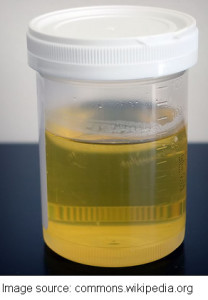
Five percent of the absorbed alcohol would reach the kidneys and be expelled with the urine. Since alcohol depresses the function of vasopressin, a hormone that conserves fluid, the alcohol is usually excreted around twenty minutes from ingestion.
Most alcohol tests for urine would detect alcohol about 48 hours after alcohol ingestion. However, with the ETG Urine Alcohol Test, the ethyl glucuronide present in the urine would confirm the ingestion of ethanol three to four days after alcohol was ingested. That is about 80 hours after the alcohol has been metabolized in the liver.
Alcoholic Tests
Alcohol Blood Test
The presence of ethanol in the body can be measured through an alcohol blood test. Since alcohol is easily absorbed into the system, the amount in the blood can be measured a few minutes after it has been ingested. The peak level of alcohol in the bloodstream can be observed an hour after the initial intake. The accepted alcohol blood testing standard is by the use of the gas chromatography, mass-spectrophotometry apparatus (GC-MS) which is capable of identifying and isolating alcohol and other drugs.
A blood sample is withdrawn using a syringe. The sample is then sent to the laboratory for ethanol measurement. The majority of states consider a blood concentration level of between 0.08% and 0.10% to be legally intoxicated. For individuals below 18 years old, a BAC of 0.08% is considered to be intoxication. Blood levels of around 0.08% – 0.40% causes an escalating impairment and possibly depression of the central nervous system. Values more that 0.40% can be lethal.
With many laboratory tests, there are factors that might affect the results of the alcohol blood test:
- Using too much rubbing alcohol when cleaning the area for blood withdrawal
- Diabetics with high levels of blood ketones (diabetic ketoacidosis) might give a false-positive results
- Intake of cough medicines or alcohol-containing herbal supplements
Be sure to inform the technician beforehand if what medications are being taken. And make sure that the disinfectant used is not alcohol-based to prevent the occurrence of false positive results.
The blood test will only analyze the presence of alcohol in the system. It will not reveal the length of time alcohol was ingested or if the client has any problems with alcohol use.
Alcohol Breath Test

The amount of alcohol ingested can also be tested through the exhaled air since it is not digested or chemically changed upon absorption. Because alcohol is volatile, some amount of blood alcohol will diffuse across the alveoli in the lungs. Therefore, the concentration of blood alcohol and those in the lungs are equal. The proportion of breath alcohol and blood alcohol is 2,100 / 1. That means that every 2100 ml of alveolar air has an equal alcohol content as with 1 ml of blood.
As the person exhales, the alcohol is detected once it goes into the breath analyzer. So instead of using the invasive blood test procedure, an officer of the law can now instantly test a person for the presence of alcohol in the system. Try to be sure the sample comes from the alveolar air and not from the mouth, stomach or throat. During training the officers learn the proper techniques for obtaining accurate results. For instance, having the user take a couple of deep breaths and exhale them forcefully will help you get the alveolar air from the bottom of their lungs. Most certified individuals observe the client for fifteen to twenty minutes cautiously before performing the test.
An insufficient breath specimen can give incorrect results. So make sure to give clear and simple directions for the user to follow. Remember that these individuals are intoxicated. Nonetheless, some people will try to trick the breath analyzer to get false results in their favor.
ETG Alcohol Testing
The ETG Urine Alcohol Test detects the presence of the metabolite of ethanol, ethyl glucuronide, in the urine sample. Its presence is an indication of alcohol intake for the last four days – eighty hours after its metabolism. This procedure is usually done to monitor intake of alcohol by individuals who are undergoing alcohol treatment and who are legally prohibited to take in alcohol.
The ETG Urine Alcohol Test is very responsive to even the slightest amount of alcohol in the body. It’s so sensitive that even traces of alcohol from other sources can give a false-positive result. Based on a study done by SAMHSA, there are some products that can affect the result of the test. These products include: hygiene products, cosmetics, after shave, antiperspirant or laundry products – anything that contains even a slight amount of alcohol.
ETG Alcohol Facts
Image source: NRTlaboratories.com
Saliva Alcohol Test
This non-invasive test detects alcohol in the saliva. It gives a comparable reading to the alcohol content in the bloodstream. It can effectively determine the alcohol level in the saliva 10 to 24 hours after intake. However, the enzyme (alcohol oxidase) [9], is easily affected by extreme temperature ranges.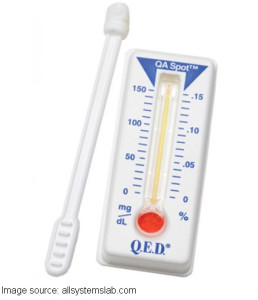
This type of alcohol test is cost-effective and easy to use. To ensure that the tests are accurate, clients are requested not to eat or drink anything for about fifteen minutes before the test is scheduled. The strip’s reaction pad would react to the saliva and change the color indicator. To correctly interpret the results, check the color codes and instructions found inside the box.
As you can see there are many variables to consider when you attempt to assess the alcohol content in a person’s blood, urine, breath, saliva or throughout their system. This is what makes it so critical to be careful when conducting tests. That is the only way you will get accurate results. It is those BAC readings that can be used to interpret how long does alcohol stay in your system.



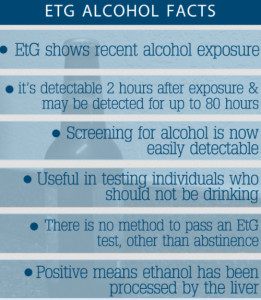
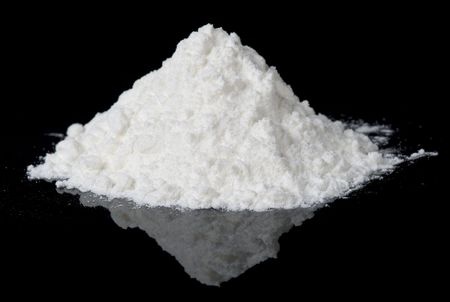

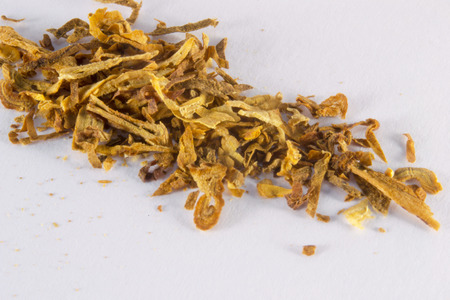
How long does alcohol stay in your system?
If someone had been drinking alcohol for 1 month , how long will it disappear from your system